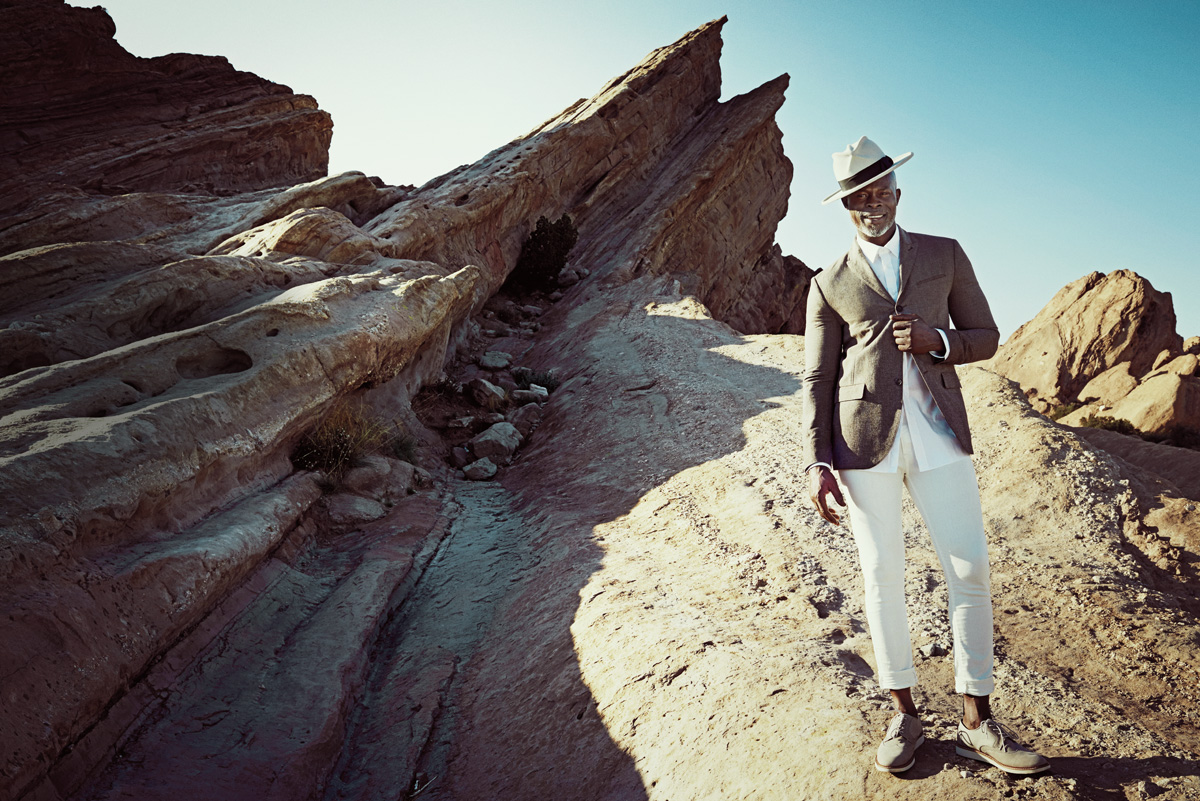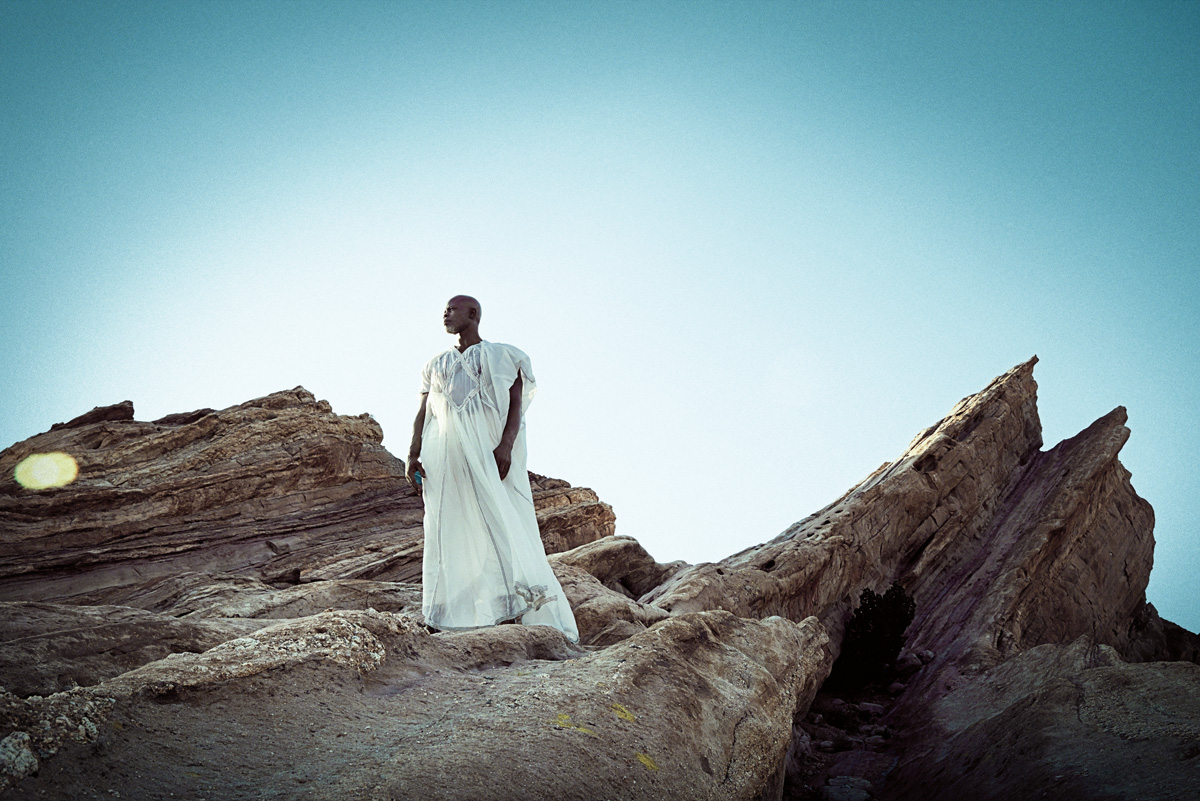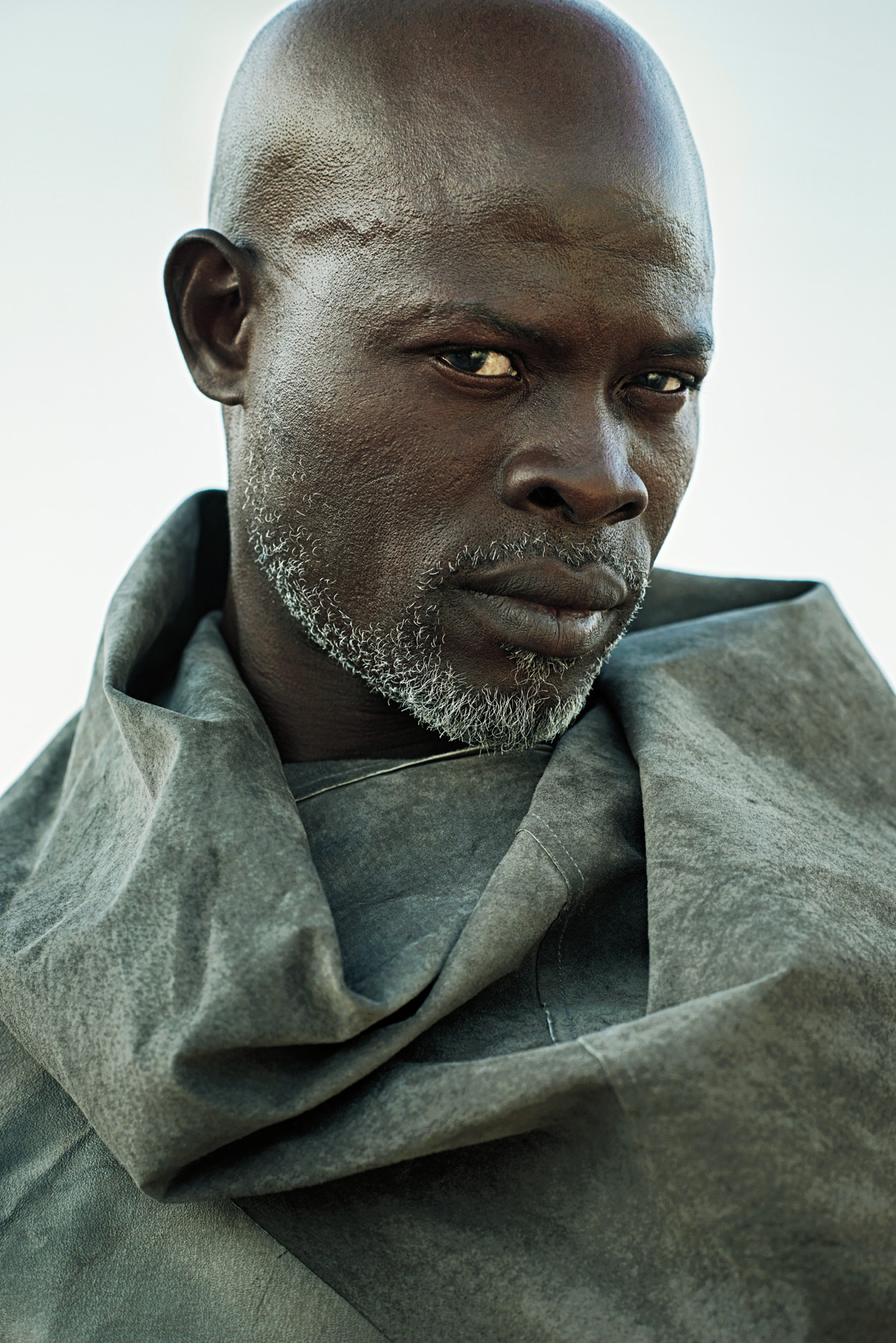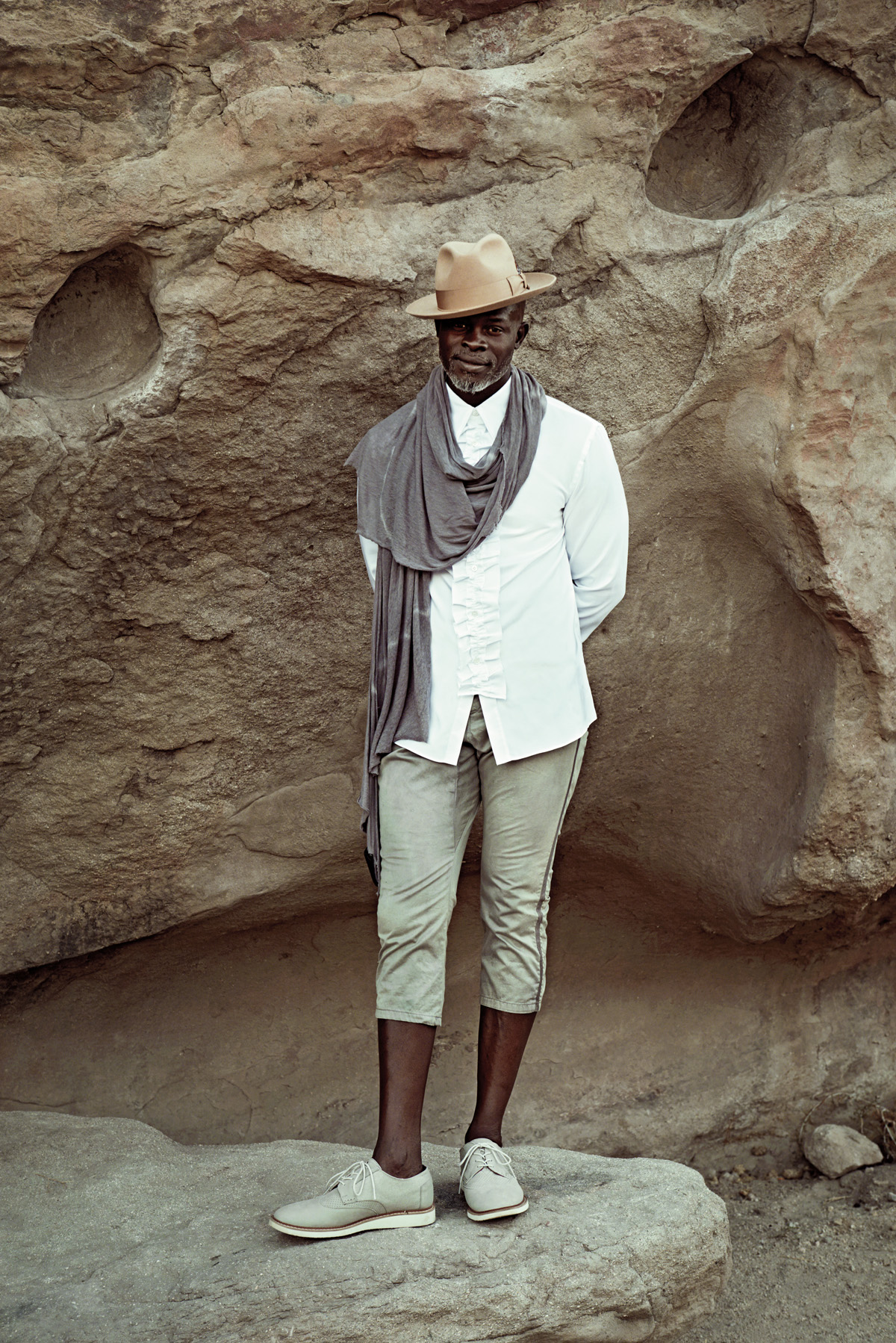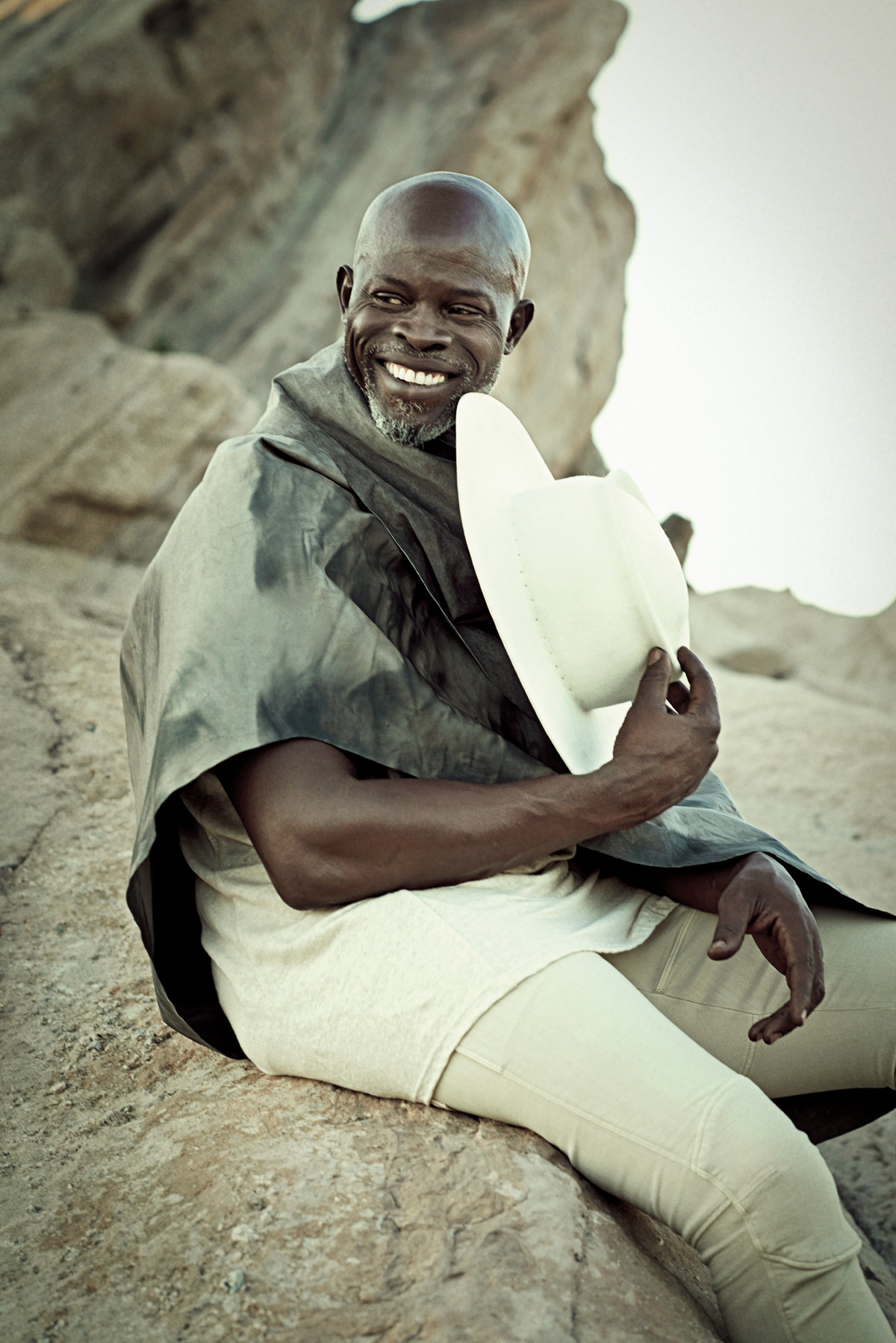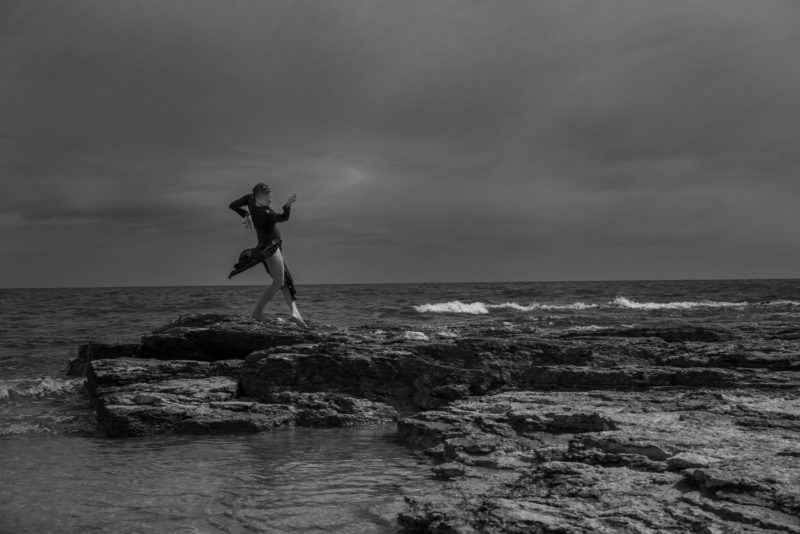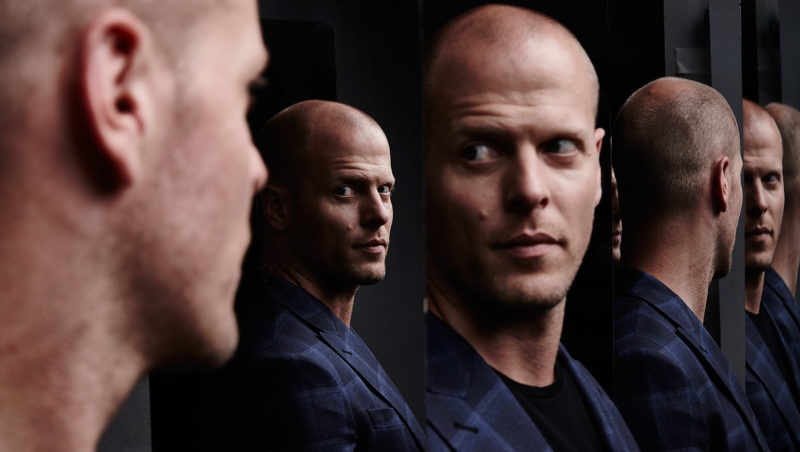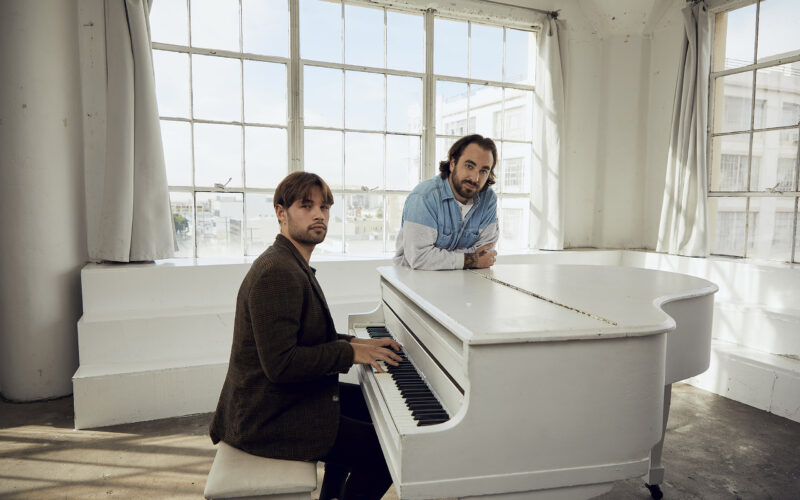International film star Djimon Hounsou tells us about belief in oneself…and something else.
Blazer John Varvatos / Shirt Hugo Boss / Jeans Gstar / Hat Glades Tamez Millinery / Shoes Tom’s
Kwaku Alston: Where are you from?
Djimon Hounsou: West Africa, Republic of Bénin, right next to Nigeria.
KA: What does your name mean?
DH: Djimon means “Friday”; Hounsou means “born within the cradle of Voodoo.”
KA: At thirteen you left your native country for France. Why such a bold move?
DH: It was an academic choice. France was Bénin’s colony country, and my family thought it best to better my education. After school I decided my dreams were too big for Lyon, so I decided to go to Paris and accidentally fell into fashion just by being homeless on the street; I didn’t know anyone, and I slept on benches for a year and then got a job with Thierry Mugler, the photographer and designer. I went with him to the Sahara Desert and Mali.
KA: So you travel from Africa to Paris, and you go back to Africa to work?
DH: [laughs] I was scared because that required me having my residence papers in Paris. Mugler’s office arranged for me to go along and peacefully get back. So I went back to the street and benches because I didn’t have any money; I hadn’t been paid yet.
KA: When did you decide to go from fashion to Hollywood?
DH: I was working again with Mugler and we were coming to America to shoot a series of photos in New Mexico. I came to California first to meet a friend and decided to pursue acting. That industry is quite narrow-minded in Paris; in Hollywood I said, “This is my opportunity, everything takes place here.” So I went to drama classes, and nine years later got my break with director
Steven Spielberg.
KA: Was that your dream?
DH: The dream was to be in entertainment, mostly movies. I first thought about it as a kid in Africa but it was a big fantasy. Dreams are seedlings of reality. If you limit yourself in dreaming, you will never be able to achieve much in reality past those limitations.
KA: How do you get into a character?
DH: I look at it from a visceral approach. I use imagination as a great instrument of interpretation. Though if the role is based on a true story I will do research and try to emulate the character.
KA: Your roles often require physical strength, and you are in an amazing shape. Do you have dietary routines?
DH: I follow an alkaline diet to avoid too much salt and acid.
Leather Puncho Antonio Barragan / Kaftan Boeheim Society
KA: You’ve played so many different roles in Africa, Europe and North America. Is that difficult?
DH: The ability to be reactive: that’s what we’re looking for in acting. You need to infuse yourself with roles. The continents are broken apart, but the essence of human beings is very much the same. Emotionally it has to stay organic.
KA: What advice would you give to aspiring actors?
DH: The only advice – which I’m not sure people grasp – is to never lose sight of the dream. Any given day somebody in your circle might discourage you. It’s important to surround yourself with
like-minded people who have similar dreams. Keep nourishing that dream or it’s definitely never gonna happen.
KA: When you were on the streets, did you ever want to give up?
DH: Of course. There was despair every waking moment. That said, what exactly are you giving up? You had nothing. You can’t hit bottom lower than the street — unless you dig your own grave.
My biggest passion is my cultural heritage, wanting to tell the story of my people. We need to have more uplifting African stories told on an international level with positive heroes and role models.
KA: What are you working on now?
DH: My biggest passion is my cultural heritage, wanting to tell the story of my people and document our way of life after six centuries. In Bénin we still practice Voodoo, which means “spirit.” I want to follow the trail of slavery, which left imprints in places like New Orleans, where they actually practice our way of life. It’s the journey of my people. We have to overcome the stigma of stories told about Africa – they are always stories of deprived people. We need to have more uplifting African stories told on an international level with positive heroes and role models. We are a continent that is rich in culture and minerals with so much to provide to the world.
KA: You recently went to Africa to pursue this project. What did you discover?
DH: I’m still reflecting on the journey, and I have yet to digest all of it, but it was an amazing and uplifting experience.
KA: Do you have heroes?
DH: Mandela, Behanzin, Stephen Biko, Fela Kuti and Dutty Boukman.
KA: Do you love yourself?
DH: Yes, one must love oneself to keep going as a spiritual being.
Leather Puncho Antonio Barragan
Scarf B+S / Shirt Alexander McQueen / Pants Antonio Barragan / Shoes Tom’s / Hat Flame Keeper
Tank Clade / Jean Gstar / Leather Puncho Antonio Barragan / Hat Glades Tamez Millinery

